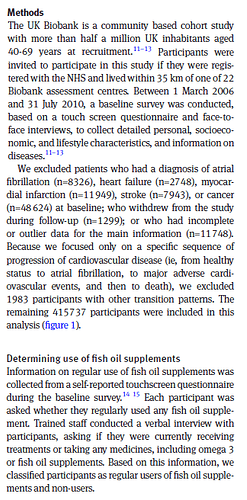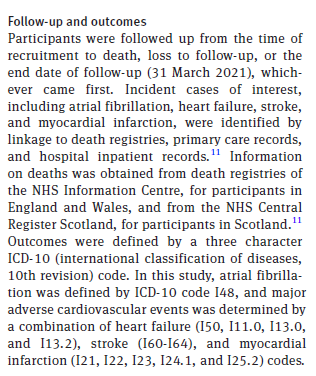Trying to make sense of these results. Seems counter-intuitive that fish oil supplements would be bad for healthy folks yet good for those with pre-diagnosed heart conditions. Could be possible … but seems like odd findings.
I’d be mostly interested in figuring out what an elevated hazard risk of 1.13 actually means in terms of real percentage risks with vs without fish oil supplements. Not obvious, since that info wasn’t (directly) provided.
One could tease out such info from the figures provided across several tables but I haven’t devoted the time yet. Any takers for that effort?
"Regular use of fish oil supplements and course of cardiovascular
diseases: prospective cohort study" April 2024 BMJ:
FishOilUse-HeartDisease.pdf (624.5 KB)
Thoughts?







